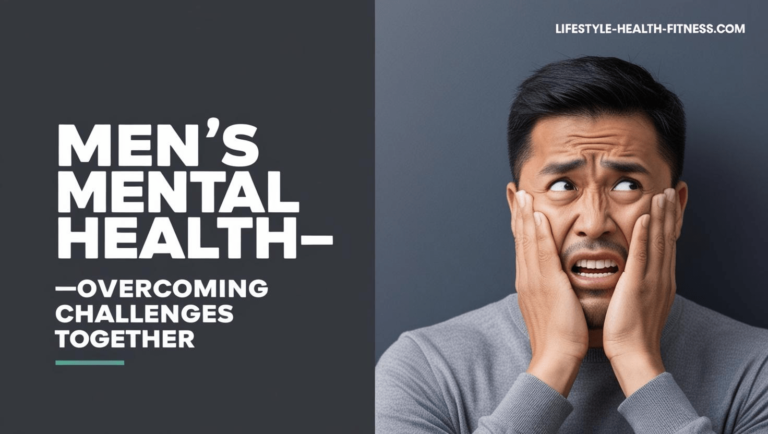November 19th marks Men’s Mental Health Day, an essential reminder of an often-overlooked issue. Many men feel compelled to remain silent about their struggles, which is why men’s mental health often goes unnoticed.
What prevents men from discussing their mental health? Is it societal expectations, the pressure of masculinity, or something deeper?
Stay with us as we explore the challenges men encounter and discover ways to support them.
Men’s Mental Health Week
In addition to November 19th, Men’s Health Week is celebrated annually in June. This initiative aims to raise awareness about the various challenges men face and promote strategies that enhance both physical and mental health.
This year, Men’s Health Week was observed from June 10th to 16th, focusing on the theme of Men’s Health Checks.
People wear green ribbons to show their support for Men’s Health Week each year.
Why Is Men’s Mental Health A Concern?
Men’s mental health is frequently overlooked. The World Health Organization reports that male suicide rates are double those of females.
This issue is significant as men often hesitate to seek help and believe they must handle their problems alone.
Moreover, according to the National Institute of Mental Health, men are less likely than women to receive the mental health support they need.
It’s essential to understand why men refrain from consulting professionals.
The Centers for Disease Control and Prevention (CDC) states that in the United States, men are four times more likely to die by suicide than women.
Additionally, mental health issues impact men differently than women.
• Research from BMC/BioMed Central indicates that while women are generally more likely to experience mental health conditions and attempt suicide, men are 3.5 times more likely to die from these attempts.
• Various factors contribute to men’s mental health issues, including the pressure to embody traditional masculine roles, being the primary breadwinner, self-reliance, and reluctance to openly discuss their challenges.
Common Mental Health Issues Among Men
The following are the most prevalent mental health disorders affecting men:
Depression
Depression encompasses a range of conditions that can cause persistent low mood and significantly impact daily functioning.
It is, without doubt, the most common mental health disorder among men worldwide.
Unfortunately, men often seek treatment for depression less frequently than women.
PTSD
Post-Traumatic Stress Disorder (PTSD) occurs after experiencing or reliving traumatic events.
Approximately 60% of men will face a traumatic event in their lifetime, which can vary widely and may include:
1. accidents
2. bullying
3. natural disasters, etc.
Anxiety Disorders
Anxiety disorders lead to intense feelings of worry and fear. General Anxiety Disorder (GAD) commonly co-occurs with depression.
While women generally experience anxiety disorders more frequently, men often do not pursue treatment.
Other manifestations of anxiety can include obsessive-compulsive disorder (OCD) and social anxiety disorder, with both conditions affecting men and women alike.
Related Post: How to Overcome Loneliness at Home?
What Are The Signs Of Mental Health Disorders In Men?
Men and women may experience similar mental health disorders, but men often exhibit different symptoms. These can include:
1. mood fluctuations and changes in appetite
2. difficulty sleeping or insomnia
3. decreased libido
4. substance misuse, such as alcohol or drugs
5. feelings of anxiety characterized by fear and worry
6. unexplained physical symptoms, like headaches, pain, and digestive issues
7. struggle to experience positive emotions
8. thoughts of self-harm or suicide.
How Can We Support Men Facing Mental Health Challenges?

To assist your loved ones who may be struggling with mental health issues, there are several actions you can take. Many men believe they should solve their problems independently, often due to societal pressures and fear of vulnerability.
Here are some effective ways you can help:
• Observe changes in their mood and behavior.
• Open a dialogue; men may not disclose their feelings easily, especially following significant life changes like divorce or retirement.
• Encourage them to make appointments with healthcare professionals, or offer to assist them in seeking help.
• If you suspect someone is contemplating suicide, remain with them and contact emergency services right away.
Natural Solutions for Sleep Challenges
Frequently Asked Questions:
1. What are the most prevalent mental health issues in men?
Common mental health challenges faced by men include depression, anxiety, and substance abuse.
2. Why do men often hide their mental health struggles?
Many men perceive societal expectations as pressurizing them to project strength, resulting in concealing their difficulties.
3. What color represents men’s mental health?
The teal color is commonly associated with awareness of men’s mental health.
4. Why is men’s mental health frequently overlooked?
The stigma surrounding mental health and prevailing notions of masculinity can lead to men’s issues being disregarded.
5. How can I support a man dealing with mental health issues?
Encourage them to talk openly, listen without judgment, and gently suggest they consider professional help. Small acts of kindness can significantly impact.


